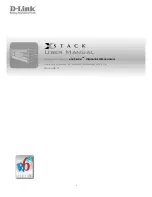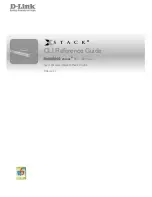
6
No. Attribute
No.
Attribute
24 State
71 ARAP-Features
25 Class
72 ARAP-Zone-Access
26 Vendor-Specific
73 ARAP-Security
27 Session-Timeout
74 ARAP-Security-Data
28 Idle-Timeout
75 Password-Retry
29 Termination-Action
76 Prompt
30 Called-Station-Id
77 Connect-Info
31 Calling-Station-Id
78 Configuration-Token
32 NAS-Identifier
79 EAP-Message
33 Proxy-State
80 Message-Authenticator
34 Login-LAT-Service
81 Tunnel-Private-Group-id
35 Login-LAT-Node
82 Tunnel-Assignment-id
36 Login-LAT-Group
83 Tunnel-Preference
37 Framed-AppleTalk-Link 84 ARAP-Challenge-Response
38 Framed-AppleTalk-Network 85
Acct-Interim-Interval
39 Framed-AppleTalk-Zone 86 Acct-Tunnel-Packets-Lost
40 Acct-Status-Type
87 NAS-Port-Id
41 Acct-Delay-Time
88 Framed-Pool
42 Acct-Input-Octets
89 (unassigned)
43 Acct-Output-Octets
90 Tunnel-Client-Auth-id
44 Acct-Session-Id
91 Tunnel-Server-Auth-id
Extended RADIUS attributes
The RADIUS protocol features excellent extensibility. The Vendor-Specific attribute (attribute 26) allows a
vendor to define extended attributes. The extended attributes implement functions that the standard
RADIUS protocol does not provide.
A vendor can encapsulate multiple sub-attributes in the TLV format in attribute 26 to provide extended
functions. As shown in
, a sub-attribute encapsulated in attribute 26 consists of the following
parts:
•
Vendor-ID
—ID of the vendor. The most significant byte is 0. The other three bytes contains a code
compliant to RFC 1700.
•
Vendor-Type
—Type of the sub-attribute.
•
Vendor-Length
—Length of the sub-attribute.
•
Vendor-Data
—Contents of the sub-attribute.
For more information about the proprietary RADIUS sub-attributes of HP, see "
."
















































